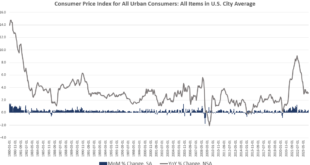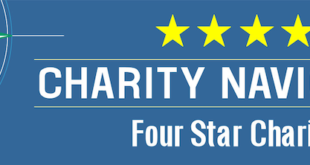President Biden may have recently made history as the first president to discuss snack chips in the State of the Union message. He used snack chips to illustrate the phenomenon of shrinkflation. Shrinkflation occurs when businesses reduce the amount of goods sold in order to avoid raising prices. President Biden pointed out that businesses hope that, since both the price and the size of the package remain the same, most consumers will not notice they are getting...
Read More »How the Democrats Plan to Steal the Election
Biden and Trump have clinched the nominations of their parties for President. Everybody is gearing up for a battle between them for the election in November. It’s obvious that Biden is “cognitively impaired.” In blunter language, “brain-dead”. Partisans of Trump are gearing up for a decisive victory. But what if this battle is a sham? What if Biden’s elite gang of neo-con controllers won’t let Biden lose?How can they stop him from losing? Simple. If it looks like...
Read More »The Only Good One Is a Closed One: No Reform of Government Schools
Currently, more people seem to be waking up to the state of educational institutions. Complaints of indoctrination in schools by both parents and teachers have increased in public debate in recent years, with various discussions relating to topics such as critical race theory and gender ideology.In addition to political indoctrination, issues such as the drop in reading and math proficiency and policies of prolonged school closures during covid lockdowns have also...
Read More »New Video: My Lecture on Secession at Oklahoma State University
The Free Enterprise Society at Oklahoma State University was kind enough to recently invite me to lecture on secession at the University on March 13, 2024. This talk is significantly different from the secession debate at LibertyCon in February because this lecture covers historical, theoretical, and international aspects of secession in much greater detail. The talk is approximately an hour long: Remote video URL [embedded content]...
Read More »Price Inflation Accelerates for Second Month as Biden Blames “Greed”
According to the Bureau of Labor Statistics' latest price inflation data, CPI inflation in February accelerated for the second month in a row, and price inflation hasn't proven nearly as transitory as the regime's economists have long predicted. According to the BLS, Consumer Price Index (CPI) inflation rose 3.2 percent year over year during February, without seasonal adjustment. That’s the thirty-sixth month in a row of inflation well above the Fed’s arbitrary 2...
Read More »Police Dogs Have Abolished Constitutional Due Process
The Fifth Amendment declares, “No person shall be . . . deprived of life, liberty, or property, without due process of law.”Except by dogs.The Supreme Court declared in 1967, “Wherever a man may be, he is entitled to know that he will remain free from unreasonable searches and seizures.”Except by dogs.The Fourth Amendment prohibits warrantless unreasonable searches, but canines now provide push-button vetoes for constitutional rights. Last month in my piece “Highway...
Read More »State Militias and the Second Amendment: Decentralizing Military Power
Tu ne cede malis, sed contra audentior ito Website powered by Mises Institute donors Mises Institute is a tax-exempt 501(c)(3) nonprofit organization. Contributions are tax-deductible to the full extent the law allows. Tax ID# 52-1263436 [embedded content] Tags: Featured,newsletter
Read More »Connecticut’s Housing Shortage Is Rooted in Government Policies
There is no shortage of experts that the government is willing to hire to gain public favor for a particular policy. For Connecticut, that expert is a man named Cameron Rifkin, a policy associate for the National Council of State Legislatures. On December 4, 2023, at a legislative roundtable discussion on housing, Mr. Rifkin spoke of the grim reality of the housing situation in Connecticut, stating, “Sixty-eight percent of renters in Connecticut with extremely low...
Read More »Janet Is Yellin’ Nonsense. Stagflation Is around the Corner
The canary in the coal mine, is the consumer in our current economic period. We can still hear it, but it is growing weaker.We clearly hear Janet Yellen telling us in a March interview that rapidly increasing credit card use by consumers is normative. Is it normative to use credit card debt to offset “transitory” inflation?America has used credit to promote a recovery. Household debt rose to 17.5 trillion in the 4th quarter 2023. Debit and Credit card balances...
Read More »Marx, Class Conflict, and the Ideological Fallacy
Our present cultural landscape is filled with the language of class conflict, ideology, bias (conscious or unconscious), and the politicization of everything. While there are many contributors to this, we can largely thank (or blame) Karl Marx and his theory of class consciousness and class conflict. While not necessarily following Marx in his economics, these concepts have captured the imagination of many, especially in the modern Western world.The claim is rather...
Read More » Swiss Economicblogs.org
Swiss Economicblogs.org


